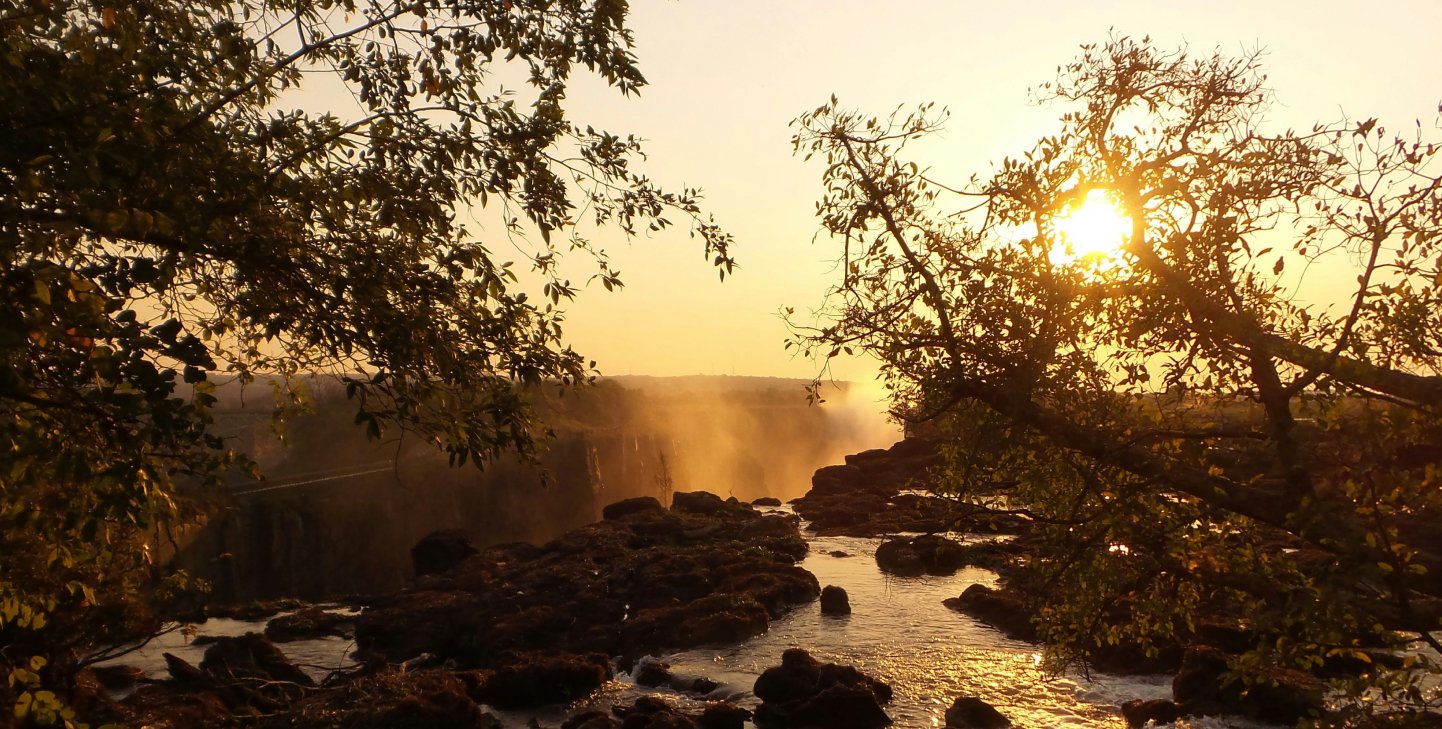

Volunteer in Zimbabwe
Give rescue dogs in Zimbabwe a second chance as conservation canines.
Travel to Monde Village near Victoria Falls, Zimbabwe, and help train rescue dogs to become skilled trackers and protectors for wildlife conservation. Immerse yourself in the local culture and take in the breathtaking Victoria Falls. This area is surrounded by game reserves with diverse wildlife, including elephants, lions and the critically endangered black rhino. Join this innovative program dedicated to conservation and giving rescue dogs a second chance.
Join us in Monde Village, just outside Victoria Falls, Zimbabwe, to train rescue dogs for vital conservation work. Assist canine handlers in caring for and training these dedicated dogs, who thrive in a supportive environment away from overcrowded shelters.
Conservation canines play a vital role in anti-poaching and wildlife conservation efforts. While specialised dogs often require significant investment in training and breeding, our partner in Victoria Falls has found that rescue dogs are enthusiastic and quick learners with impressive adaptability. By training these rescue dogs for conservation work, we also help address shelter overpopulation.
When you volunteer with GVI in Victoria Falls, you’ll be part of an innovative wildlife conservation project. Training rescue dogs to help with these efforts will support the protection of threatened and endangered wildlife.
Filter programs
Contribute to sustainable conservation projects led by experts.
Use your unique skills and expertise to support conservation projects.
The adventure of a lifetime while making an impact with a group of like-minded teens.
Generate solutions to help solve conservation challenges through research projects.
Turn your passion into your profession with a three-month placement at an NGO.

Our hub is located just 15 minutes outside Victoria Falls, in the community of Monde (‘MAWN-DAY’) Village. We’re conveniently close to town and local attractions while providing an immersive experience in the surrounding environment. You’ll also have the chance to see local wildlife such as warthogs, birds and antelope that pass through the area.
The Victoria Falls waterfall, one of the Seven Natural Wonders of the World, is located on the border between Zambia and Zimbabwe. Known locally as “Mosi-oa-Tunya” or “The Smoke That Thunders,” this magnificent waterfall spans nearly 1.7 kilometres and plunges 108 metres into the Zambezi Gorge. The sheer volume of water cascading over the edge creates a mist that can be seen from miles away, accompanied by a roaring sound.
The surrounding area is a UNESCO World Heritage Site, attracting thousands of visitors each year who come to witness its breathtaking beauty and engage in thrilling activities like white-water rafting and bungee jumping.
Highly trained detection dogs are often costly, creating challenges for protected areas in need of such resources. This project demonstrates the training of rescue dogs as a viable alternative. The dogs are selected from Zimbabwe’s rescue kennels according to specific criteria, allowing them to become integral members of the wildlife conservation team. This approach helps address kennel overpopulation and provides them with a new purpose (a new “leash” on life!)
The project operates on the fundamental belief that all animals deserve freedom from suffering. By utilising the natural abilities of rescue dogs for wildlife protection, rather than breeding new working dogs, this approach supports shelter management and strengthens conservation efforts. Our volunteer in Victoria Falls project acknowledges the crucial role of dogs in wildlife conservation, highlighting their dedication and skills in protecting biodiversity.
When you think of Zimbabwe and Victoria Falls in particular, you might imagine the heart-pounding rush of the falls, sightings of wild animals, vast open spaces, and rolling rural landscapes. Here are the top five things you can experience when you join us as a volunteer in Victoria Falls.
- Experience life in a traditional Zimbabwean village with vibrant local culture.
- You’re just a stone’s throw from Victoria Falls, a Natural Wonder of the World.
- Be part of an innovative program using rescue dogs for conservation work.
- Enjoy time with diverse dog breeds that thrive on attention and training.
- Visit Big Five reserves and enjoy thrilling adventures like Devil’s Pool and bungee jumping.
Zimbabwe is home to an incredible diversity of wildlife. From our base in Victoria Falls, you’ll be close to the region’s national parks and game reserves, such as Zambezi National Park and Hwange National Park. These protected areas host a variety of species including the iconic Big Five: elephants, lions, leopards, buffalo and rhinos.
The Zambezi River (which forms the mighty Victoria Falls) provides the ideal habitat for a range of bird, fish and reptile species, as well as hippos and crocodiles. Listen out for the African fish eagle and the elusive Pel’s fishing owl. Free time on our program gives you the chance to experience local safaris and wildlife excursions, soaking up the area’s rich biodiversity.
What language is commonly spoken in Zimbabwe?
English is commonly spoken throughout Zimbabwe and at the project site. Numerous local languages are also spoken, but you will be able to get around with English.
What is the weather like in Zimbabwe?
Zimbabwe is in the southern hemisphere, which means winter begins in May and summer in November. The dry season, from May to October, has sunny days and warm temperatures, while the wet season, from November to April, features higher temperatures and afternoon thunderstorms.
How can I stay in touch with friends and family back home?
We offer free Wi-Fi on base, so you’ll be able to use messaging platforms to keep in touch. If you’d like a more regular signal, consider buying a local SIM card for an unlocked phone.
What can I do in my free time?
Victoria Falls is a must-see destination, offering an incredible opportunity to witness the sheer power and might of nature. You can also go bungee jumping near the falls, or raft down the river below. Boat cruises and safaris are an excellent way to relax and see the natural landscape. Further adventures include Zambezi and Hwange National Parks. Should you wish to travel further, consider extending your trip to visit Botswana, Namibia or South Africa through a local tour provider.
Do I need any qualifications to volunteer in Victoria Falls?
You don’t need any specific experience or qualifications to join GVI on a volunteer project in Zimbabwe. We will provide project training during your program.






